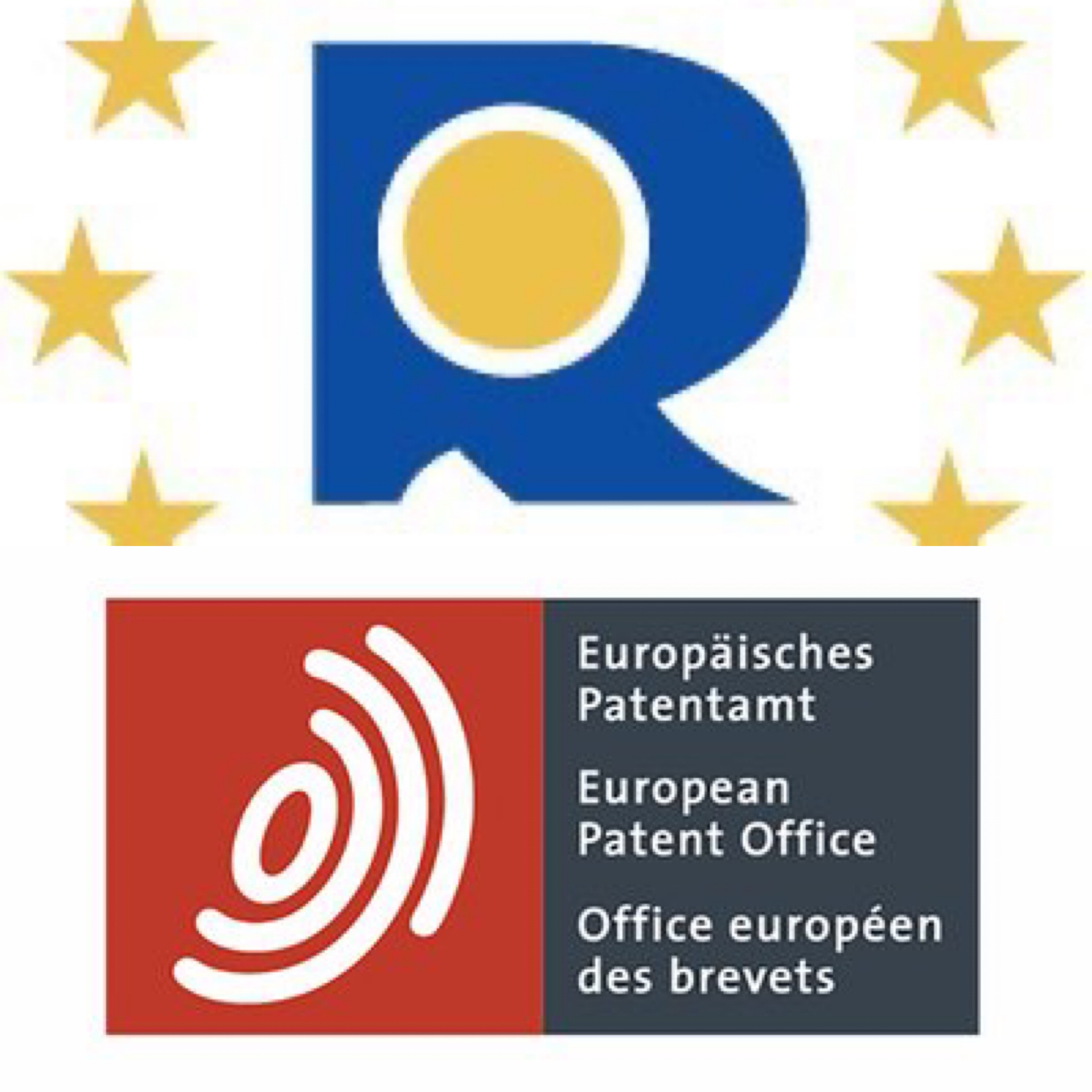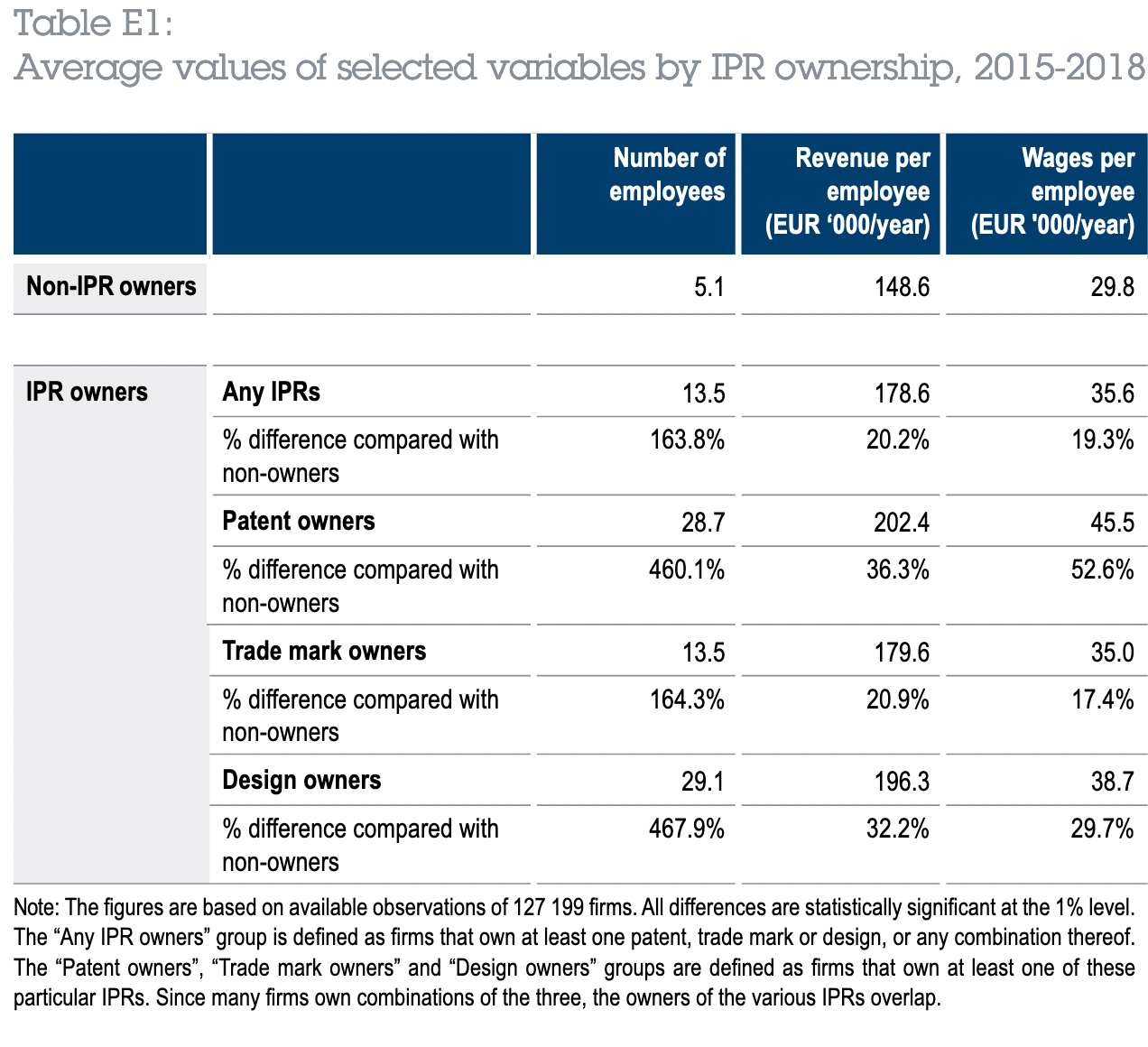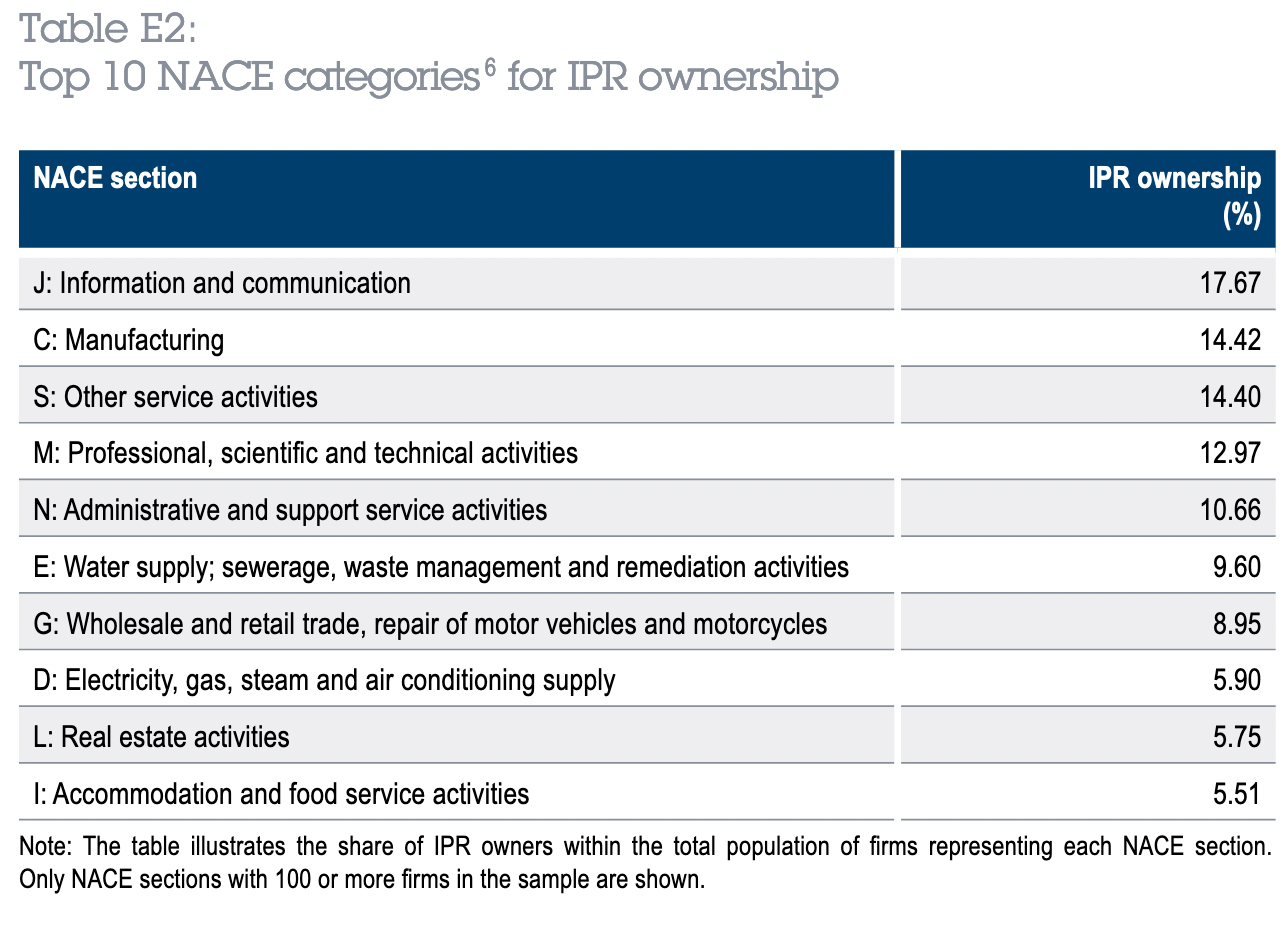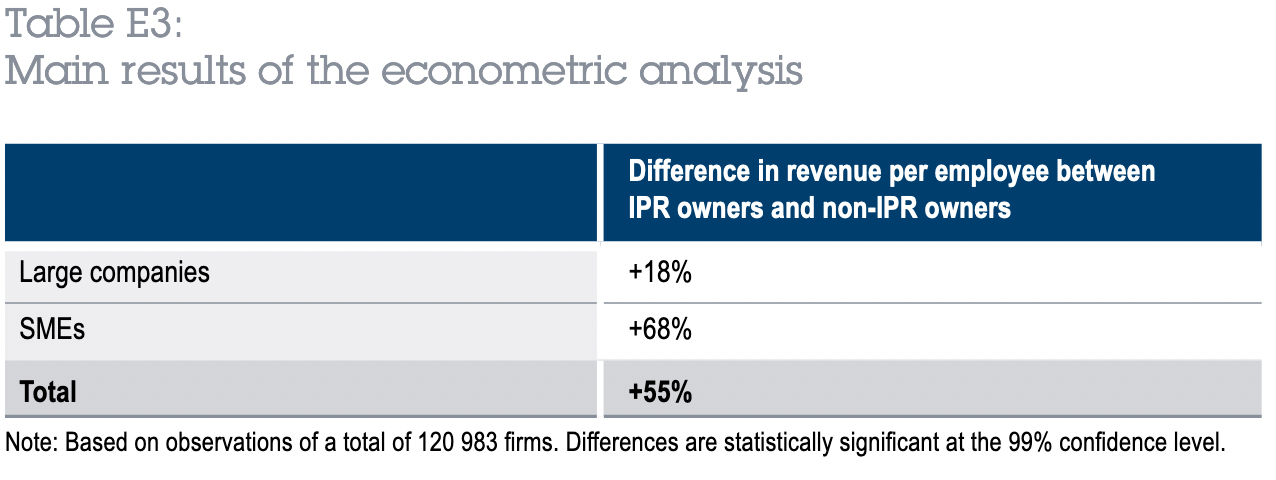“While the study notes that the findings ‘do not constitute conclusive proof that encouraging firms to make greater use of IPRs will cause their performance to increase,’ it suggests that the positive association between IP ownership and economic performance could be particularly beneficial to SMEs, which currently have a ‘low uptake’ of IP rights.”
 The latest in a series of reports by the European Patent Office (EPO) and European Union Intellectual Property Office (EUIPO) studying IP-intensive industries and their contribution to economic performance and employment in the European Union has found that companies owning at least one patent, registered design or trademark generate higher revenues per employee than companies that do not own IP rights and pay higher wages on average than other companies.
The latest in a series of reports by the European Patent Office (EPO) and European Union Intellectual Property Office (EUIPO) studying IP-intensive industries and their contribution to economic performance and employment in the European Union has found that companies owning at least one patent, registered design or trademark generate higher revenues per employee than companies that do not own IP rights and pay higher wages on average than other companies.
The EPO-EUIPO report is titled “Intellectual property rights and firm performance in the European Union” and builds on research conducted in 2013, 2016 and 2019 regarding the contribution of IP-intensive companies to the EU economy, as well as a 2015 EUIPO study based on data from 12 Member States. The latest report analyzes over 127,000 European firms and compares the economic performance of firms that own IPRs with those that do not. It utilizes “improved data and methodology” and includes data from companies in all 27 Member States, rather than just the 12 covered by the 2015 report.
In a note on the methodology used, a joint EPO-EUIPO press release further explained:
The report is based on a statistical analysis of a sample of more than 127 000 companies from all 27 Member States of the EU and the United Kingdom, covering the period 2007-2019…. The methodology has also been improved by a team of economists from the EPO and EUIPO. It covers patents, registered designs and trade marks, and any combination of the three. It also covers both European and national IPRs.
Among the key findings are:
- European firms that own IPRs have on average 20% higher revenue per employee than firms that do not;
- IPR-owning firms also pay high wages to their employees (19% higher than firms that do not own IPR); and
- While almost six out of ten large companies in Europe own IPRs, only 9% of the region’s SMEs hold a patent, registered design or trademark.
When broken down by type of IP right, patent ownership was correlated to 36% higher revenue per employee and 53% higher wages; registered designs to 32% higher revenue and 30% higher wages; and trademarks to 21% higher revenue and 17% higher wages.
The report also found that “IPR-owning firms are more strongly represented in the sectors of information and communication (with 18% of companies in that sector owning IPRs), manufacturing (14%) and other service activities (14%), as well as scientific and technical activities (13%).”
While the study notes that the findings “do not constitute conclusive proof that encouraging firms to make greater use of IPRs will cause their performance to increase,” it suggests that the positive association between IP ownership and economic performance could be particularly beneficial to small and medium-sized enterprises (SMEs), which currently have a “low uptake” of IP rights. Previous studies have shown that some of the reasons for this include “lack of knowledge about IPRs, a perception that registration procedures are complex and costly, and the high cost of enforcement of those rights.”
The study showed that SMEs that own IPRs have a 68% higher revenue per employee than those that do not, whereas, “for large companies, this revenue premium is 18%.” This “highlights the significant potential among smaller firms of further exploiting IPRs,” said a joint press release on the report.
Accordingly, the EPO and EUIPO are planning to address those concerns via their Strategic Plans and the European Commission’s SME strategy formulated in early 2020, says the report.
Christian Archambeau, EUIPO Executive Director, said in a statement: “In a critical context for the majority of European businesses, these results underline the importance of making it easier for small companies to protect their innovations and creativity with IP rights, one of the major goals of our Strategic Plan 2025.”
EPO President António Campinos added: “The study further demonstrates that there is significant untapped potential for SMEs in Europe, as it shows that they stand to benefit the most from owning intellectually property. Added to this, businesses which make intensive use of IPRs helped pull us through the 2008 financial crisis, so I strongly believe innovation will help drive Europe’s recovery from the impact of COVID-19.”
Data From the Report:




![[IPWatchdog Logo]](https://ipwatchdog.com/wp-content/themes/IPWatchdog%20-%202023/assets/images/temp/logo-small@2x.png)

![[Advertisement]](https://ipwatchdog.com/wp-content/uploads/2024/04/UnitedLex-May-2-2024-sidebar-700x500-1.jpg)
![[Advertisement]](https://ipwatchdog.com/wp-content/uploads/2024/04/Artificial-Intelligence-2024-REPLAY-sidebar-700x500-corrected.jpg)
![[Advertisement]](https://ipwatchdog.com/wp-content/uploads/2024/04/Patent-Litigation-Masters-2024-sidebar-700x500-1.jpg)

![[Advertisement]](https://ipwatchdog.com/wp-content/uploads/2021/12/WEBINAR-336-x-280-px.png)
![[Advertisement]](https://ipwatchdog.com/wp-content/uploads/2021/12/2021-Patent-Practice-on-Demand-recorded-Feb-2021-336-x-280.jpg)
![[Advertisement]](https://ipwatchdog.com/wp-content/uploads/2021/12/Ad-4-The-Invent-Patent-System™.png)






Join the Discussion
One comment so far.
Pro Say
February 10, 2021 07:54 pmSo; patents = higher employee wages + higher revenue per employee
Think: Bueller? Bueller? Ferris Bueller? :
Congress? Congress? U.S. Congress?
Has anyone seen the restoration of patent eligibility to all areas of American innovation that Congress promised back in 2019?
Anyone? Anyone? Anyone?